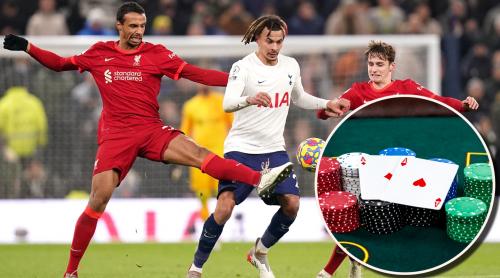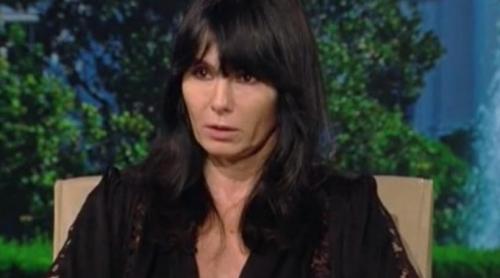by EMIL HUREZEANU - February 23rd 2005
There is a "red line" refusing to leave us, even after many, many years. The big problem of these years was Ion Iliescuâs unsettlement between the wanted communism, represented by the human face of Gorbaciov, and the obtained communism,
with the face of Adrian Nastase. It has been our problem all this time.
Their mixture gave Vanghelie. The text beneath was written five years ago. Replace SDPR (the Social Democratic Party in Romania) with SDP (the Social Democratic Party) and the optimist possibilities then with the dark certainties today. You will be able to see not only the past and the future, but also the useless milestones of an endless and clear road, on which we lay like some miserable prisoners of an unknown war.
The "French channel" is still far from the judicial epilogue, but the public and political dimensions of the scandal have started a new and autonomous dynamics.
An important political party, SDPR, which many people in Romania and abroad were preparing to see as the representative of the power alternation, seems more and more naked and vulnerable. Everyone is able to see now that there was a group-corruption mechanism working in this party. Maximal and minimal leaders, treasurers and intermediates that subordinate the most important state bank in favour of some personal illegal affairs are all part of it. Ion Iliescu, the SDPR leader and former President of Romania, without even being cited on the lists of the Prosecutorâs Office hearings, has adopted again and equivoque logics.
He did not remember, then he remembered piece by piece, he denied, he was annoyed and, finally, looking at the expected gathering around his candidacy, he regained his unmistakable firing and aplomb.
However, Ion Iliescu is touched by these scandals, seems confuse and annoyed. Coming back from Germany, a few days ago, the SDPR leader revealed himself: "No comment" - was the spontaneous answer for the question regarding a possible resignation. During his visit in Germany he met with several SDPR members who knew about the Costea scandal and offered him an welcoming which was rather polite. Actually, there has not been another time for Mr. Iliescu to be closer to resignation than he has been now. Nevertheless, if the solidarity of the SDPR leading board with their problematic leader does not succeed in covering the lack of enthusiasm and sincerity around him, the partyâs and leaderâs electorateâs attitude is still unknown.
The public-opinion evaluators often use the concept of "spiral of muteness". It means that most of the members of a community accept systematically and quietly the modish electoral phrase or preference, even if they have a different opinion. They do that because they want to leave the impression of being in the centre but not at the margins of the social community. However, when such a phrase suffers a hit similar to the one received by the honest and poor man leading the SDPR, the image of the smiley and powerful leader corrodes and results into reactions from the electorate. This process, in which the elector, willingly or not, chooses the public phrase revised by the pre-eminent fashion, is a long one, but it is also safer than the changes appearing in the options recorded by the ordinary polls.
Richard Nixon, Willy Claes, Bettino Craxi or Helmut Kohl, when being exposed to the public blame, were respected, competent and popular protagonists of that times. The press exposures have been fatal to them, even before they were denied or confirmed by the justice. Their parties recorded important losses in the polls, and their old virtues started to be reasons for doubts. Nevertheless, all the mentioned political leaders were inspired enough to quit.
"Exit with honour" - getting out the stage with honour has become a combination of the occidental political argot. There, in the west, resigning due to an assumed error, even if it was before it became a judicial
case, is the synonym for the beginning of the personal and public rehabilitation process.
Crossing the desert is next; sometimes, it is a little longer, like the case of Richard Nixon, other times, it is endless, like the case of the former Italian Prime Minister, Bettino Craxi, to whom the justice in his country was so harsh that he wasnât allowed to return, not even near his death.
Ion Iliescu has been a national and responsible politician, who had important records in the last years of the communism. He was one of the few high officers of the communist system who followed his principles more than the restrictions of submission. After 1989, his role became more complex and harder to evaluate. Ion Iliescu ensured a certain form of social and political stability, which is a hard thing to achieve in a country accidentally freed over night, in which the assassins and the victims of the regime as well wanted to become saviours of it. Ion Iliescu balanced the extremes, but created them as well by choosing an equivoque course for the reform and an evasive external politics, too tributary to the soviet relay. The Iliescu years provided a continuous, but hard evolution, which gave small results.
The possibility of his return to the leading positions resulted into fears and criticisms in Romania and abroad. The affairs and the politics media, as well as the representatives of the security alliances explicitly or allusively explained their doubts regarding a re-launch of the Iliescu era. The Costea scandal is the compulsory opportunity for analysing the Iliescu governing and its political potential. Mr. Ion Iliescu only is the person to settle for the exit with honour. This way, he will spare his party and his country, his own reputation and historical evaluation, and he will re-become that patriot and capable person, which is worthy of his friendsâ admiration and of his enemiesâ respect.
Translation : SORIN BALAN


















